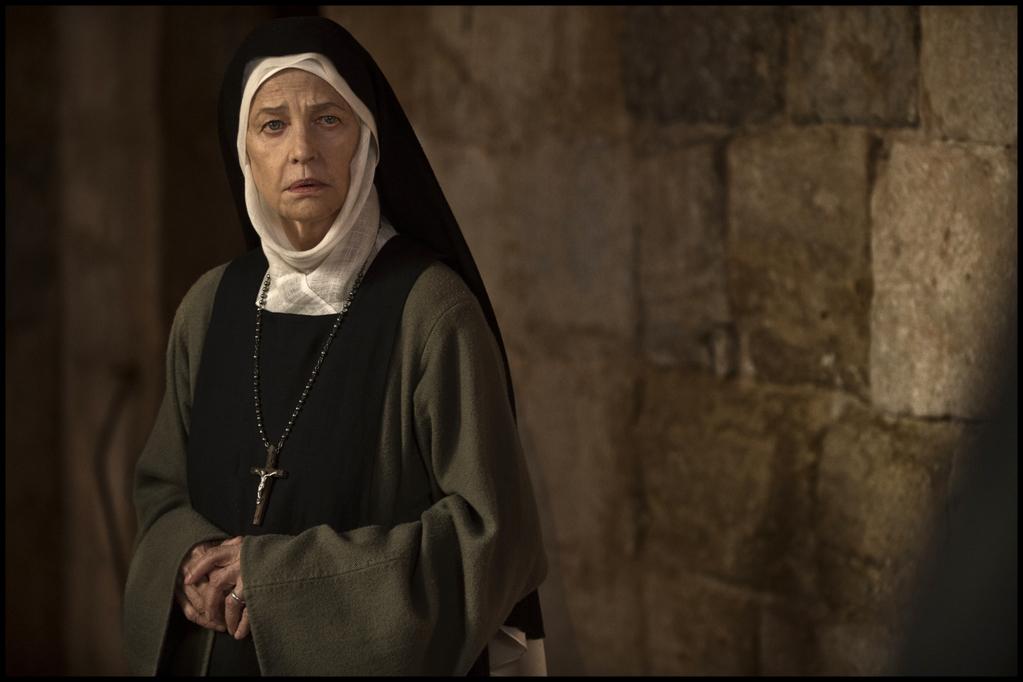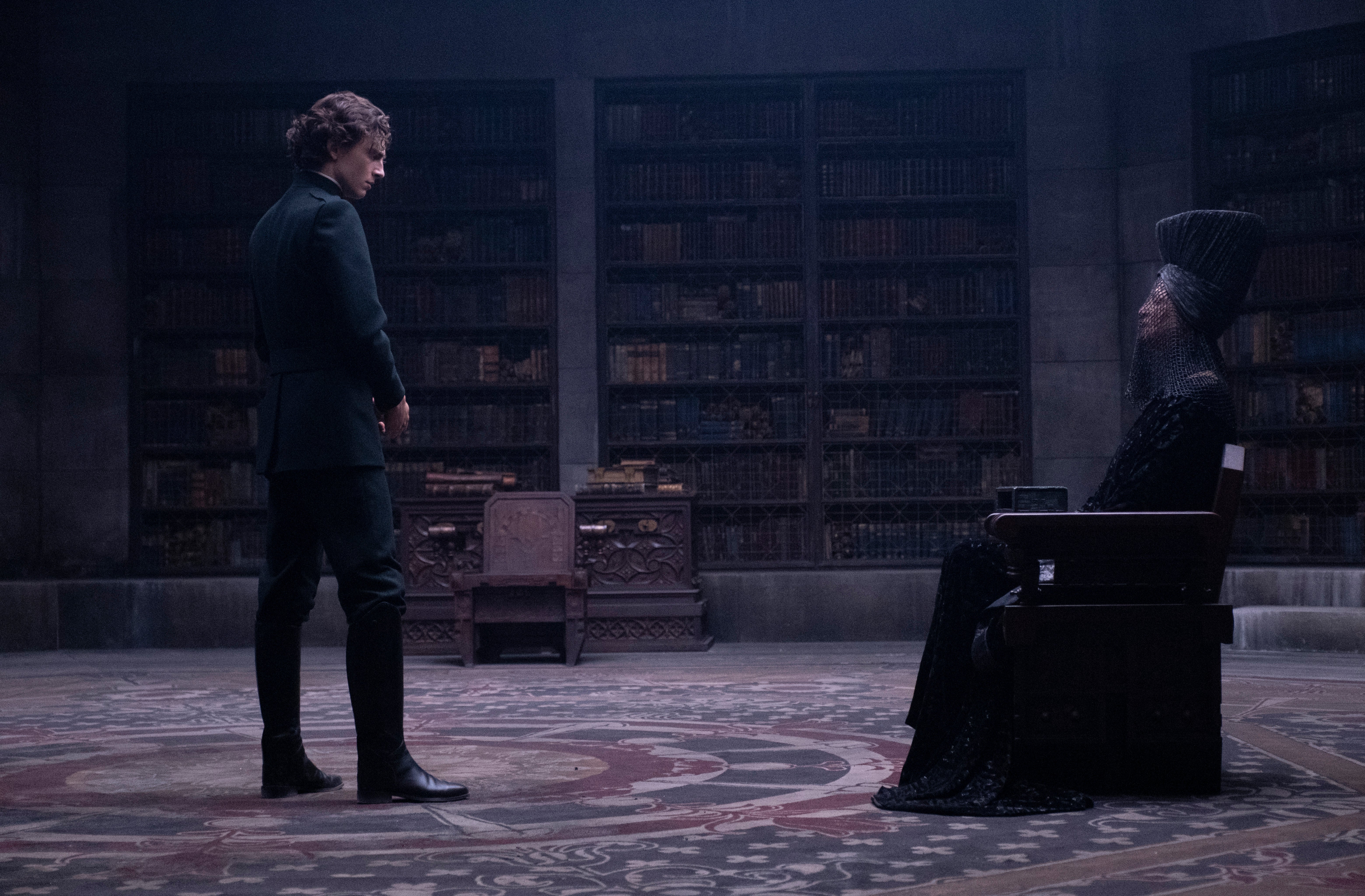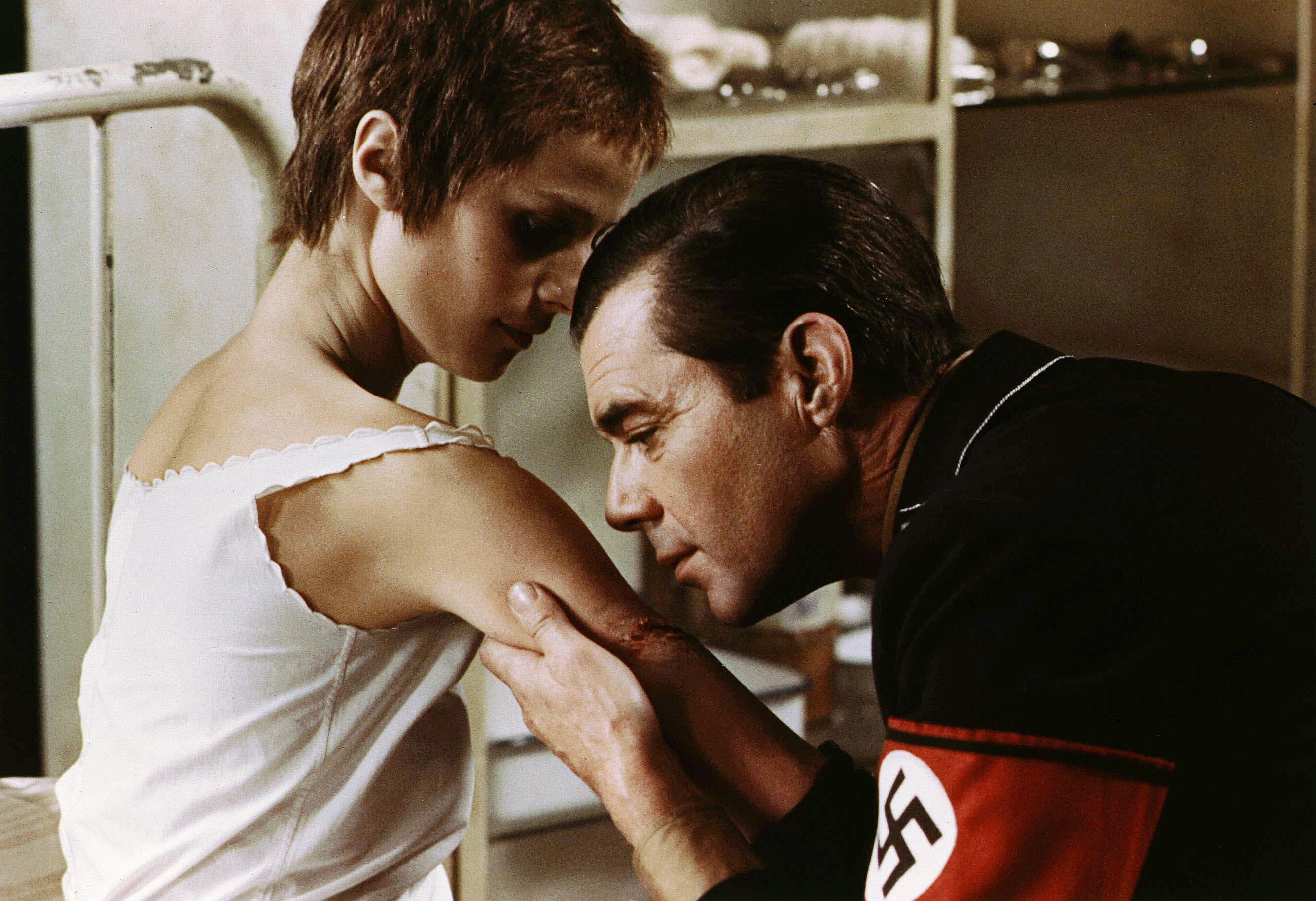From rebellious sirens to formidable nuns: The enduring appeal of Charlotte Rampling
The 75-year-old is in two of the most hotly discussed films of the year, Paul Verhoeven’s ‘Benedetta’ and Denis Villeneuve’s ‘Dune’. She is one of the few stars from the Sixties who is still doing such strong work, writes Geoffrey Macnab, but what is the secret of her staying power?

It’s over half a century now since Charlotte Rampling burst into British movies in the mid-1960s, immediately establishing herself alongside the likes of Twiggy, Jean Shrimpton and Michael Caine as one of that turbulent decade’s defining personalities. This was the era of The Beatles and Swinging London. Rampling had been spotted by the Boulting brothers who saw a picture of the young actor in a magazine and immediately recruited her for their risque satire, Rotten to the Core (1965).
“It was one of those lucky chances. I was launched into the film business,” she later recalled of how, after a couple of bit parts in Richard Lester movies (including a cameo as “girl at disco” in Beatles picture A Hard Day’s Night), she achieved instant stardom.
Her first leading role was revealing. The Boultings cast her as the scheming Sara, Burnley-born but Paris-educated and a consummate crook. She has been on screen for only a few seconds when she is shown stripped to her underwear and snogging her latest boyfriend. “I want to live!” she yells at her father when he asks why she won’t come home to Lancashire. Instead, she helps the boyfriend The Duke (Anton Rodgers) with his latest criminal enterprises.
She was in a similar groove as Alan Bates’s lissom, violin-playing girlfriend Meredith in Georgy Girl (1966). Rampling was the young goddess, or that is how she was regarded by her flatmate Georgy (Lynn Redgrave), who was plain, plump and dowdy by comparison. “How do I look?” Rampling’s character asks Georgy early on in the film. “Sensational… sensational,” Georgy replies, with a mix of envy, awe and antagonism.
Rampling was never going to play conventional female leads. That simply wasn’t in her nature. In these early British films, she was shown as beautiful, self-centred and subversive. Male directors couldn’t resist throwing in voyeuristic close-ups of her but she had a natural defiance, as if she scorned their gaze.
However, when she saw herself screen for the first time, she left the cinema in tears. “It was, I guess, just the shock, the embarrassment of revealing myself to such an extent because I didn’t like to reveal myself,” she later told the BBC. This has always been the paradox about Rampling. She is a reserved and private figure who has continually taken roles that have required extraordinary levels of self-exposure. She is a quintessentially English figure, the daughter of a British army officer, and yet has continually appeared in films made by international directors. Some of those films have been extreme in subject matter and the demands they’ve placed on her.
Even so, all these years later, Rampling is the last woman standing. The filmmakers and actors with whom she worked in the Sixties and early Seventies are either dead or long retired. However, she is continuing to appear in challenging, provocative new films.

Rampling is in two of the most hotly discussed films of the year, Paul Verhoeven’s lesbian nun drama, Benedetta, which scandalised the Cannes Festival earlier this summer, and Denis Villeneuve’s epic new version of Frank Herbert’s sci-fi novel, Dune, which receives its world premiere at the Venice Festival this week.
“Absolutely wonderful,” Verhoeven told me when I asked about his experience of working with Rampling on Benedetta. She plays an abbess whose power is usurped by Benedetta, the nun possessed by weird erotic visions.
“I didn’t do anything,” Verhoeven said of the directions he gave his veteran star. The only suggestions he would occasionally make were about her emphasis on certain words as she was performing in French, not her first language.
“When I was talking to Charlotte before choosing her, she came in for a little conversation,” he said. “She was funny. We were talking about the advantages and disadvantages of taking this part. At the end, she said, ‘I don’t see a reason not to do it.’ ‘Why don’t you do it?’ I asked. ‘OK, I’ll do it,’ came the matter of fact reply.”
Male directors couldn’t resist throwing in voyeuristic close-ups of her but she had a natural defiance, as if she scorned their gaze
Verhoeven sensed that she was a very private person. "She is very much on her own… I don’t know even that much about her. I felt I didn’t need to say anything. Better not to say anything!”
Other stars of Rampling’s experience might have been wary about appearing in a film as lurid and provocative as Verhoeven’s latest folly. It comes complete with Sapphic nuns, Virgin Mary-topped dildos, scenes of plague and burnings at the stake. Rampling relished the experience. As the Abbess plotting to bring Benedetta down, she is icy, sardonic but also courageous and with very strong passions of her own. Her performance has a depth and pathos you don’t normally find in nunsploitation movies.
Rampling is equally striking in Dune as Gaius Helen Mohiam, the powerful Reverend Mother who is ready to kill the visionary young hero Paul Atreides (Timothée Chalamet) as she tests him to see if he really does have the right stuff. Again, she is chilling and aloof, but is not as hostile as she first appears.

Dune must have been a passion project for Rampling. In 1976, when she was a guest on the BBC’s long running radio show Desert Island Discs, she chose Frank Herbert’s book as the one she would take with her to the island. “It’s basically a science fiction book but it takes man’s mind and projects it very, very far into the future. I think on a desert island that would give me enormous ideas,” she told the host Roy Plomley.
Rampling has always been drawn to mind-bending roles. As a young star in the Sixties, in search of challenges, she left England as quickly as she could to work in France and Italy. Now, in the twilight of her career, she refuses to book herself into The Best Exotic Marigold Hotel or to play lovable eccentrics in whimsical British comedies.
When she starred as the concentration camp survivor in Liliana Cavani’s The Night Porter (1974), reviving a sado-masochistic relationship with a Nazi officer (Dirk Bogarde) who had tortured her, she was quickly nicknamed by the press as the “kinky queen”. This is still one of her most notorious films. The scenes of her bare-breasted, cap-wearing and performing a Marlene Dietrich-like torch song for Nazi guards skirt dangerously close to exploitation. Some were appalled by the tone of the film.
“The Night Porter is as nasty as it is lubricious, a despicable attempt to titillate us by exploiting memories of persecution and suffering. It is (I know how obscene this sounds) Nazi chic,” wrote American reviewer Roger Ebert.
Rampling, though, still regards it as one of her proudest achievements. Speaking in Rotterdam in 2018, she called it “a film of great beauty… a tortured, strange decadent love story”. It set a benchmark. Once she had gone this far, nothing else could daunt her.

At the start of her career, Rampling was the rebellious siren of Sixties British cinema. She is again being typecast now. In her bigger budget movies, she invariably plays matriarchal figures who make youngsters shrivel in her presence. Whether as the frosty and formidable Mrs Ayres in woefully underrated British horror film The Little Stranger or as the headmistress who puts Jennifer Lawrence through her paces as a secret agent in Red Sparrow, or now in Dune and Benedetta, she excels at playing stern women with brusque manners but hidden depths.
It was noticeable that when the veteran star was doing publicity for Red Sparrow, she was far keener to talk about her role as the repressed, grief-stricken wife, trying to cope with the imprisonment of her husband, in Andrea Pallaoro’s low budget art house film Hannah (2017) than to discuss her latest experiences back in the Hollywood machine.
In her early twenties, Rampling fascinated older directors like Luchino Visconti and Liliana Cavani with her “youth, wildness and fragility”. Now, she has fixated a new generation of them. Pallaoro, François Ozon, Lars Von Trier and Andrew Haigh are among those who’ve clamoured to work with her. Several talk about her as a muse. They all agree that she drills far deeper into her characters than other actors of her own or subsequent generations, often drawing on turmoil and tragedy in her own life as she does so. The Boulting brothers thought they’d spotted someone special all those years ago, and they were right. Half a century later, so many filmmakers are still desperate to work with such a force of nature.
‘Dune’ is a world premiere today, 3 September, at the Venice Film Festival and is released on 22 October
Join our commenting forum
Join thought-provoking conversations, follow other Independent readers and see their replies
Comments


Bookmark popover
Removed from bookmarks